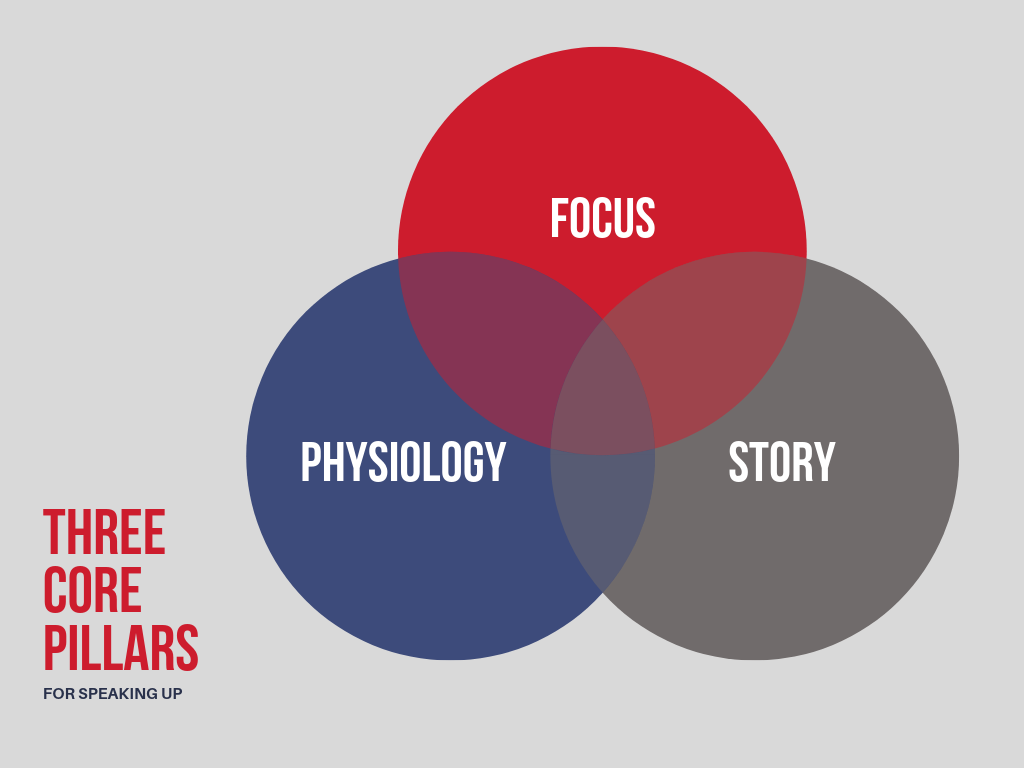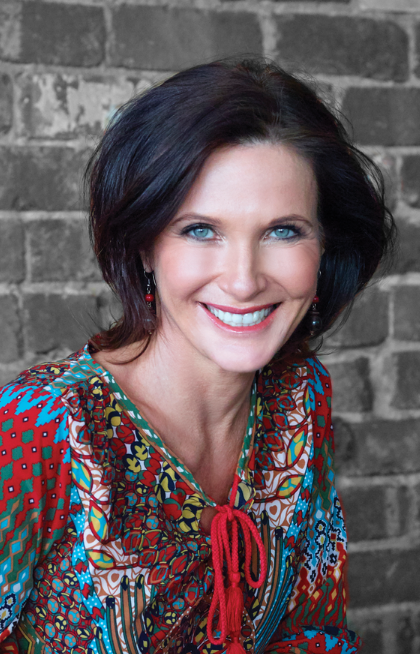Speak with Power, Poise & Impact

Many people confide in being more afraid of public speaking than they are of death. This is a little disturbing as it essentially implies that if you were at a funeral, you’d prefer to be the person in the casket than the person giving the eulogy!
My first ever speaking engagement was at my children’s kindergarten. I was so nervous my knees were shaking and my fingers fumbled through the copious notes I kept referring to. It’s fair to say I was far more focused myself—and not making a fool of myself—than on the people in the room. All two of them.
It was a humble beginning. Since then, I’ve spoken to thousands of audiences (yes, numbers have increased), and I’ve gotten better. In fact, I received a standing ovation at the last two keynote speeches I gave – one in Florida, another in Singapore. While it would be self-flattering to attribute it to my brilliant insights, the truth is that what I had to say was not anything many had not heard before.
As I reflected on what brought people to stand up, I realise it’s more likely that I’ve just got more comfortable at simply being myself – speaking more from the heart, and less from the head.
I recorded a podcast following the first of those two keynotes (before I flew to Florida) with the intention of helping you become more comfortable in speaking in front of others as well – whether it be an uncomfortable conversation with one person or a presentation to one thousand.
In the podcast, I described my three core pillars for speaking up in ways that have the greatest impact on those who are listening to you. I hope it’s helpful for you

[FOCUS] Set your highest intention for what you have to say
As I share in the podcast, my number one piece of advice is to focus on the highest intention you have for whatever it is you want to say. That is, how can what you have to say be of greatest service to whoever will listen to you.
This means that you don’t make it about you.
Of course, that may sound a little too simple if your knees start shaking at the very thought of having to speak to even one person or your job is reliant on nailing a sales pitch. But it’s true.
But when you make what you have to say about you, it prevents you from speaking in ways that optimize how your words land on others. Ironically, the less focused you are on serving yourself when you speak, the more you actually do.
As Ron Kaufman, the world’s #1 customer service expert, and I discussed in my recent podcast, when you try to connecting from the heart lays at the heart of effective communication and high-trust relationships.
[YOUR STORY] Your stories can build bridges or roadblocks to effective communication
As I’ve written before, the story we’re telling ourselves creates the reality we’re living in. It also colors the way we are viewing others, and can keep us from speaking in ways that establish rapport, build trust, and allow us to ‘speak to the listening’ of whoever is in front of us.
The stories we’re living in can encumber our ability to connect with others. So before you step behind a podium or onto a stage or even into a meeting room, just take a moment to reflect on whether the story you’re telling yourself about your ability to speak, your worthiness to speak and about the person(s) you are going to be speaking to is serving you and them… or not.
I recall speaking to a room filled with hundreds of academics from a leading university a few years ago, many with far more letters after their names than I’ll ever have. I realized I was buying into a story that these people were all far smarter than me and already knew everything I was going to tell them. Clearly, this story left me feeling inadequate and intimidated. So I tried on’ another story
These people are academically qualified but they struggle with relationships, insecurities, and pressures just like everyone else. What I have to share is no less valuable to them than to anyone else.
And with that story, I stepped onto the stage, shared my frameworks and anecdotes for embracing uncertainty and leading through change. Sure enough, the feedback I received afterward was overwhelming positive.
My point – be very conscious of the story you’re telling yourself about the value you have to bring and what’s going on for others.
[YOUR PHYSIOLOGY] Your way of being speaks more loudly than your words
I get nervous before I speak. Sometimes really nervous. But that’s okay. Our greatest power comes through our vulnerability, and when you are speaking in front of others, it’s only natural to feel a sense of vulnerability. So don’t wish it away, rather shift your physiology so that you can channel it to connect in a more authentic way.
As I wrote in my very first book Find Your Courage, when we change our physiology, it changes our psychology. How you hold yourself, the expression on your face, the way you’re breathing, and even what you’re wearing has a profound impact on how you ‘show up’ for others. So take a few deep breaths (and yes, embrace the nerves – they let you know you’re alive and that this is important to you!) and connect into your innate worthiness and the unique value you have to bring. Then put a quiet self-assured smile on your face, stand tall in that value, and speak from that place.
Hoping this simple framework is helpful. I wrote a longer column (and recorded a video) for Success magazine a while back with 7 tips you may also enjoy. Click here to read.
Also if you’d like a little more support on unleashing your voice, then you may want to check out Unleash Your Voice. I contributed to this book with a host of other female speakers and while I’m biased, I believe it has a lot of practical and empowering advice for anyone (male or female) who wants to amplify their impact as a speaker.


